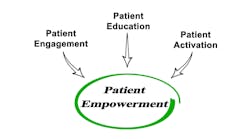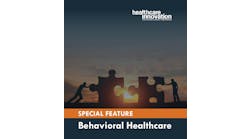- Capital Area
Washington D.C. | May 2, 2024 - Rocky Mountain
Denver | June 12, 2024 - California
San Diego | July 23, 2024 - Southeast
Nashville | September 30, 2024 - Texas
Houston | October 10, 2024 - Mid-Atlantic
Philadelphia | November 7, 2024
Virtual Spotlight Series
- Trailblazing Technologies | February 28
- Telehealth | April 25th
- Artificial Intelligence | June 25th
- The Patient Engagement Revolution | August
- Cybersecurity's Most Impactful Trends | October
- The Systemwide Push to Integrate SDoH and Pop Health | December
Sponsored Content
According to an Oct. 10 press release, a report by the World Health Organization (WHO) finds that vaccines against 24 pathogens could reduce the number of antibiotics needed by 22% or 2.5 billion defined daily doses globally every year, supporting worldwide efforts to address antimicrobial resistance (AMR). While some of these vaccines are already available but underused, others would need to be developed and brought to the market as soon as possible. AMR occurs when bacteria, viruses, fungi, and parasites no longer respond to antimicrobial medicines, making people sicker and increasing the risk of illness, death and the spread of infections that are difficult to treat. AMR is driven largely by the misuse and overuse of antimicrobials, yet, at the same time, many people around the world do not have access to essential antimicrobials. Each year, nearly 5 million deaths are associated with AMR globally. Vaccines are an essential part of the response to reduce AMR as they prevent infections, reduce the use and overuse of antimicrobials, and slow the emergence and spread of drug-resistant pathogens. The new report expands on a WHO study published in BMJ Global Health last year. It estimates that vaccines already in use against pneumococcus pneumonia, Haemophilus influenzae type B (Hib, a bacteria causing pneumonia and meningitis) and typhoid could avert up to 106 000 of the deaths associated with AMR each year. An additional 543 000 deaths associated with AMR could be averted annually when new vaccines for tuberculosis (TB) and Klebsiella pneumoniae, are developed and rolled out globally. While new TB vaccines are in clinical trials, one against Klebsiella pneumoniae is in early stage of development.

Sponsored Content
Sponsored Content





































